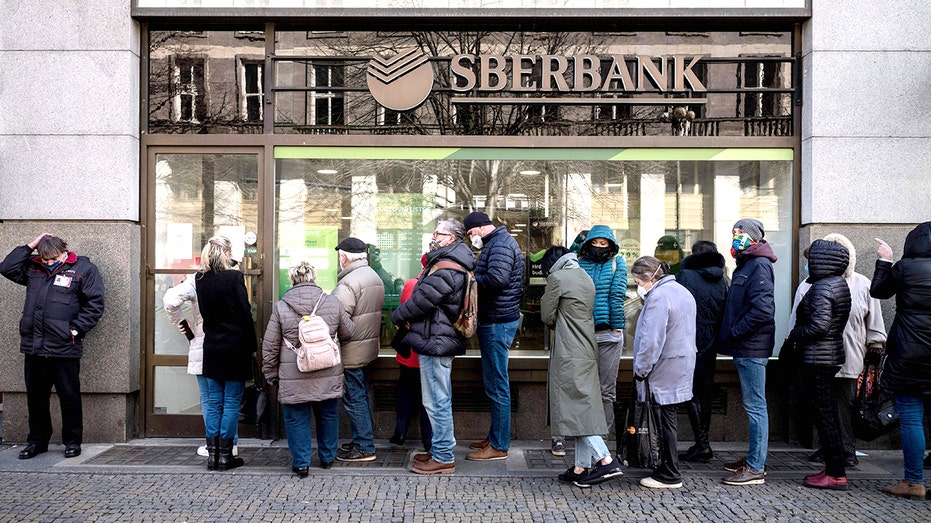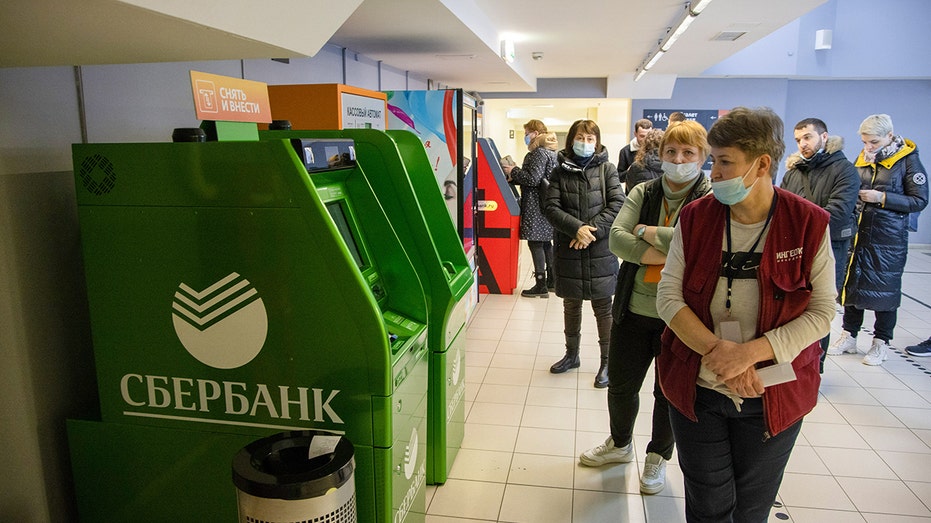Russia hides its economic status from the world during Ukraine war, journalist finds
Russia's economic data transparency was questionable prior to the Ukraine war, but has since plummeted as an aftermath
Russian economist speaks on the Russian regime's economic narratives
Fox News' Amy Kellog speaks with Russian economist Pyotr Mironenko speaks about the narrative Vladimir Putin is spreading regarding the strength of the Russian economy
"Russia's so-called 'special military operation' in Ukraine has not just led to the international isolation of the Russian economy but to new levels of government secrecy," began an article in The Bell, a Russian news organization this week.
The piece went on to say that if transparency with economic statistics in Russia was not great before the war, the suppression of data has now reached unprecedented levels.
The Federal Tax Service has stopped publishing monthly figures on imports and exports, the Central Bank has stopped putting out a monthly report on foreign trade, Sberbank, the country's biggest, has stopped publicizing who its top managers are on its website and the list goes on, according to The Bell.
Fox News spoke with Bell co-founder, editor and author of the article, Pyotr Mironenko, about what is really going on with Russia's economy, knocking Iran off its post of most sanctioned country in the world.
RUSSIA LOOKS TO CUT GAS SUPPLIES TO FINLAND AMID NATO BID
He claimed the hiding of data served more as an irritant to those following the economy and seeking people to sanction than anything else. The names and numbers are still in the public domain, but it's become harder to access them – and it's helped Russia deny what it wanted to deny.

People lining up outside a branch of Russian state-owned bank Sberbank (MICHAL CIZEK/AFP via Getty Images / Getty Images)
Because energy prices have been so high, Russia is taking in a lot of foreign currency – but, because it's under such heavy sanctions, it really can't spend the money. As a result, the ruble is counter-intuitively strong. It had traded 100 to the dollar in the earliest days of the war. Now it's hovering around 63. The government needs to convert more money at this level to pay the ruble salaries of state employees, but the benefit of the symbolism of a strong ruble apparently outweighs, for now, the economic costs of sustaining the currency at its elevated rate of exchange.
RUSSIA LOOKS TO CUT GAS SUPPLIES TO FINLAND AMID NATO BID
"The Central Bank is very careful about removing any of the restrictions that are making the ruble so strong, so expensive now. This is largely done so that the average person who walks past a currency exchange office sees there are sixty-three rubles for the dollar," Mironenko said.
"This is the main indicator for him – makes him think everything is not so bad – the ruble has appreciated, so we have shown the Americans. That's how the average Russian's logic works. I read different chats – it's this kind of social bubble window in which you're together with like-minded people. And, in these chats, a lot of people come up with precisely this reasoning: the ruble has strengthened, which means that all is well with the economy, sanctions have not hurt us in any way, the West needs our oil, so they won't go anywhere from us, and they will come crawling back to us."

Customers lining up to use ATMs inside a shopping mall in Moscow, in February 2022. (Andrey Rudakov/Bloomberg via Getty Images, File / Getty Images)
MCDONALD'S TO SELL RUSSIAN BUSINESS
Mironenko said the sanctions on technology and parts for many things will have a tremendous effect on Russia's economy because the country's production is tied in very closely with the global supply chain, but that is not going to change Russian President Vladimir Putin's course. It will be a slow decline of everything, he says, but like Iran which has been under sanctions for 40 years, life will go on. Sanctions on oligarchs he claims are not a way to get at Putin.
"I don’t think he communicates with the oligarchs these days, most likely because both sides don't see much point in it. Because the same oligarchs who complain to the European press how they’ve lost everything--what--they will come to Putin and what will they say to him? ‘Volodya, I lost everything, stop the war in Ukraine!’ Which is clearly the main project of Putin’s life right now," Mironenko said.

Ukrainian first responders carrying an injured pregnant woman from a shelled maternity hospital in Mariupol on March 9. The woman and her baby died days later. (AP Photo/Evgeniy Maloletka, File / AP Newsroom)
GET FOX BUSINESS ON THE GO BY CLICKING HERE
Despite the sanctions, the budget has remained in surplus. Economic estimates are that if the Kremlin continues the war full-throttle, it will be able to afford that and all social spending for another year and a half or two. It is only a European ban on oil, still under debate, that would deal a game-changing blow to the economy, according to Mironenko. He estimated that it would cost Russia one-quarter of its foreign currency take.
Last month, the state took in some $24 billion in oil and gas trade, Mironenko said. He added that he thought the maximum it's been spending on the war is $8 billion monthly. So, an economic collapse would not happen just like that. But, Mironenko stressed that the budget would move toward deficit next year if oil sales to Europe were blocked, at which point Russia would have to make some very tough decisions about which projects it would need to cut.




















